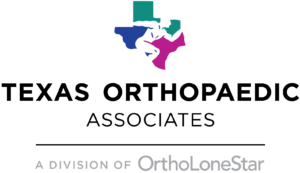When you suffer from chronic neck or back pain, spine surgery is something you’ll need to consider to get relief. At Texas Orthopaedic Associates in Dallas, Fort Worth, Keller, Plano, and Weatherford, Texas, the skilled team of orthopaedic surgeons includes fellowship-trained spine surgeons who use the most advanced tools and techniques when performing spine surgery. Though surgery is rarely the first treatment for back or neck pain, knowing your options is important. Call Texas Orthopaedic Associates today or schedule an appointment with the spine surgeon online.
SPINE SURGERY Q&A
When do I need spine surgery?
Your orthopaedic surgeon at Texas Orthopaedic Associates will tell you when to consider spine surgery. In general, the team recommends surgery only when nonsurgical interventions can’t improve your condition and they can identify the precise source of your pain.
Though the team uses minimally invasive techniques whenever possible, spine surgery is considered major surgery. The team will try several less invasive therapies before moving to surgery. These less invasive treatments include physical therapy, oral pain medication, spine injections, and regenerative medicine.
Spine surgery will probably be necessary if you display severe symptoms restricting your ability to go about your routine.
What happens during spine surgery?
No single spine surgery is like another. What happens during your procedure depends on which area of your spine needs surgery and what’s causing your symptoms.
The many types of spine surgery include:
Discectomy
During a discectomy, the orthopaedic surgeon removes a damaged intervertebral disc (the spongy cushion that separates your spine’s vertebral bones). They then place an artificial disc or fuse the two vertebral bones cushioned by the disc.
Laminectomy
A laminectomy is a procedure in which the surgeon removes a part of the laminae, the bony wall of the vertebrae, to make more room in the spinal canal. You might need a laminectomy if you have spinal stenosis (narrowing of the spinal canal).
Spinal fusion
Spinal fusion uses bone grafting material to fuse two or more vertebrae together after removing the disc. Fusion provides stability and eliminates the spinal movements that cause pain.
The orthopaedic surgeons at Texas Orthopaedic Associates perform these procedures on the neck, mid-back, and lower back.
What can I expect after spine surgery?
Spinal fusion uses bone grafting material to fuse two or more vertebrae together after removing the disc. Fusion provides stability and eliminates the spinal movements that cause pain.
You can expect some downtime and physical therapy to support your recovery for most procedures.
Spine surgery results also vary. Many people can expect significant improvements in their symptoms, but some could continue to experience discomfort.
When medical treatments fail to relieve your neck or back pain, it’s time to schedule a spine surgery consultation. Call Texas Orthopaedic Associates today or request an appointment online.


